 Activists Shocked That Hillary Clinton Vowed Not to Let Human Rights Concerns Hinder Cooperation with the China Regime –CDT 2009
Activists Shocked That Hillary Clinton Vowed Not to Let Human Rights Concerns Hinder Cooperation with the China Regime –CDT 2009
(WSJ) Taiwan held an historic election this week, with voters giving a landslide victory to the opposition and making DPP Tsai Ing-wen its first female president. The result has major implications for China, the United States and Asia, the wealthiest and most populous region in the world but did America’s future leaders notice?
Hillary Clinton who hopes to be the first female president and boasts of engineering the U.S. pivot to Asia said nothing about Taiwan this week. Clinton highlighted the tainted water scandal in Michigan, published paeans to Obama’s leadership and Tweeted about the scourge of “mansplaining” but there was no press release congratulating Taiwan and Tsai Ing-wen and no statement from the campaign trail.
Some Republicans did better. “Taiwan’s latest election once again shows the island to be a thriving democracy,” Marco Rubio said in a statement, calling for expanded economic, political and security cooperation with “one of America’s oldest and most loyal friends in Asia.”
Ted Cruz said, Taiwanese citizens “tenacious witness to the promise of liberty is a beacon of light to their neighbors, yearning to be free. America honors our friend and ally today.”
Former Florida Gov Jeb Bush, NJ Gov Chris Christie and Ohio Gov John Kasich may share these sentiments but they didn’t say so. Donald Trump was similarly mute.
U.S. foreign policy isn’t determined solely by what candidates do or don’t say while campaigning and thank goodness for that but campaign rhetoric reflects popular priorities and the general failure to note Taiwan’s election isn’t an isolated event. It reflects a too common practice of misunderstanding Taiwan’s importance as a U.S. partner, Asian bellweather and target of China (regime) aggression.
The U.S. assesses that preparing to fight Taiwan remains the ‘primary mission’ of China’s military. Taiwan once enjoyed technological military superiority along with ‘the inherent geographic advantages of island defense’ a Pentagon report to Congress said last year but recent Chinese modernization has ‘eroded or negated many of these factors.’
China’s Communists consider Taiwan a renegade province and threaten war if the island won’t voluntarily unify with China. — China State TV last year showed a military drill in which PLA soldiers stormed a replica of Taiwan’s presidential office…the phrase ‘use force to unify Taiwan’ exploded on Chinese social-media after this weeks election of DPP Tsai Ing-wen, whose platform emphasized Taiwan’s right to democratic self-government.
The U.S. pivot to Asia sought to deter Chinese aggression but ignored Taiwan. William Stanton, the career diplomat who represented the United States in Taipei from 2009-2012 said that, ‘the biggest failure of the Obama Administration’s policy towards China has been its handling of Taiwan, including ‘the omission of any references to Taiwan in describing the U.S. policy of reorientation to Asia.’ The U.S. last month announced a modest arms sale to Taiwan but that followed an unprecedented four year hiatus.
Taiwan’s size and economy certainly don’t justify its being overlooked. It has 23 million people, as many as Australia and more than most countries in the world. Largely due to its electronic exports, its America’s 10th largest trading partner ahead of India.
It’s peaceful transition from authoritarianism to democracy starting in the 1980s should be a model for the world, Chinese leaders and their boosters in the West sometime speak of a ‘Beijing model’ challenging the liberal-democratic ‘Washington consensus’ but Taiwan’s election showed how poor China looks in comparison.
China imprisons female human rights activists, lawyers and journalists; Taiwan has a female president-elect. Chinese citizens go to jail for asking their leaders to disclose personal assets; Taiwan president-elect Tsai Ing-wen asset disclosure was barely even noticed. — The Chinese doctor who became a national hero for curbing the 2003 SARS outbreak Jiang Yanyong, was soon detained for discussing the Tiananmen Square Massacre; Taiwan’s SARS hero Dr. Chen Chien-jen is now vice president-elect.
Then there is Hong Kong, where Beijing ‘promised’ to respect civil liberties and thereby create a model for Taiwan to come under its sovereignty. With Beijing’s promise of democracy now broken and mainland China agents accused of abducting government critics off Hong Kong streets, its no wonder, Taiwanese back politicians who pledge to preserve their distance from Beijing.
Studying a map reveals other aspects of Taiwan’s importance. Taiwan sits at the center of the Western Pacific’s ‘first island chain’ which stretches from Indonesia in the south to Japan in the north, bounding China’s coast and limiting Beijing’s ability to threaten the open ocean militarily. China’s control of Taiwan would mean that Chinese submarines based on the island’s east coast, with free access up and down the Pacific.
U.S. allies such as Japan consider Taiwan essential to their own security. The erosion of U.S. attention to Taiwan–and certainly the abandonment of Taiwan that some American scholars propose, could shatter U.S. alliances in Asia, which grave regional security consequences such as Japan and South Korea going nuclear.
So the election of Tsai Ing-wen, would be a good moment for Taiwan to regain American’s attention. China’s attempts to bully Taipei’s new government economically, diplomatically or militarily may soon force the U.S. to pay great attention to some crisis but that only underscores the issue’s importance now. Something for presidential hopefuls to consider as they traverse Iowa and New Hampshire.
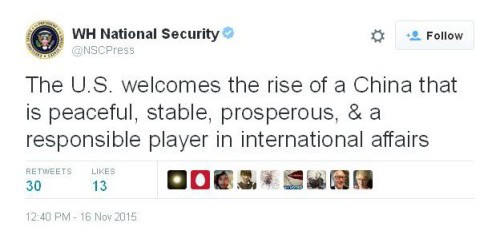 Flashback: Remember When the Obama Administration
Flashback: Remember When the Obama Administration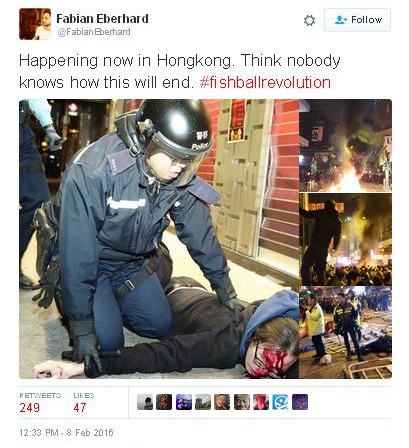 Events Unfolding in Hong Kong While Much of the World
Events Unfolding in Hong Kong While Much of the World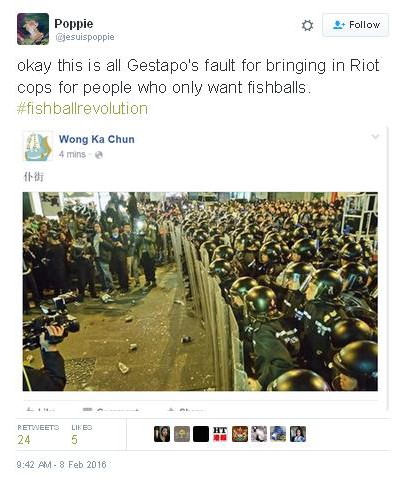 China Regime Sends in the Storm Troopers Clashing with
China Regime Sends in the Storm Troopers Clashing with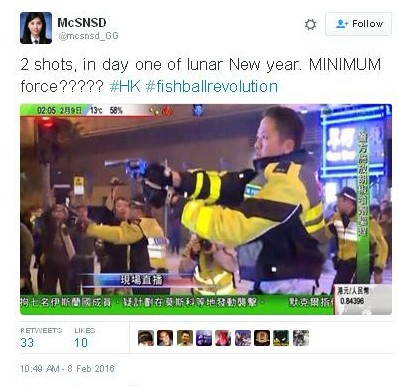 China Authorities Indiscriminately Fire Shots
China Authorities Indiscriminately Fire Shots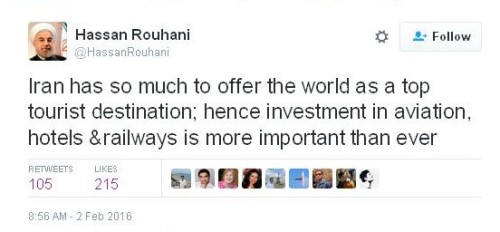 Iran a Tourist Destination?
Iran a Tourist Destination? 
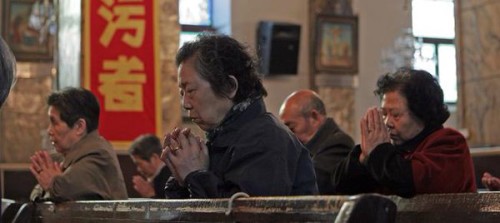 Fears of a Bid to ‘Silence’ Christians in China
Fears of a Bid to ‘Silence’ Christians in China Blessed are You Father, Lord of Heaven and Earth–You have Hidden These Things (Mysteries of the Kingdom) from the Wise and Intelligent and have Revealed Them to Infants –
Blessed are You Father, Lord of Heaven and Earth–You have Hidden These Things (Mysteries of the Kingdom) from the Wise and Intelligent and have Revealed Them to Infants – Activists Shocked That Hillary Clinton Vowed Not to Let Human Rights Concerns Hinder Cooperation with the China Regime –
Activists Shocked That Hillary Clinton Vowed Not to Let Human Rights Concerns Hinder Cooperation with the China Regime –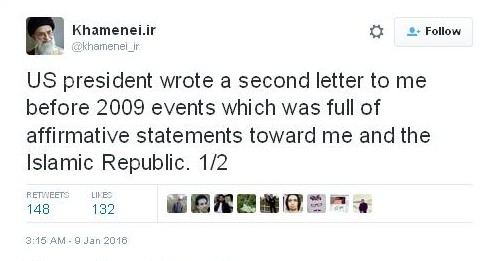 What Could Obama Have to Say Positive About
What Could Obama Have to Say Positive About 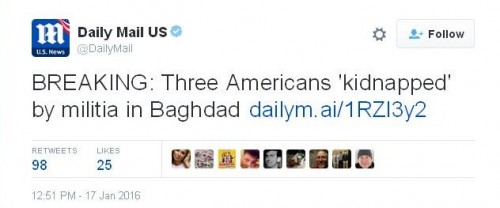
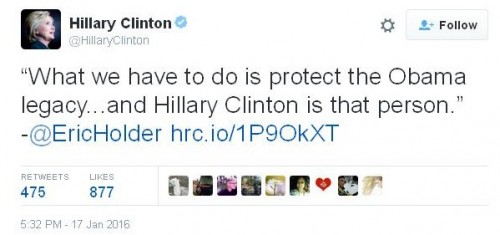 @HillaryClinton
@HillaryClinton Ying and I are Looking Forward to
Ying and I are Looking Forward to  Ride Free — Reserve Your Seat
Ride Free — Reserve Your Seat